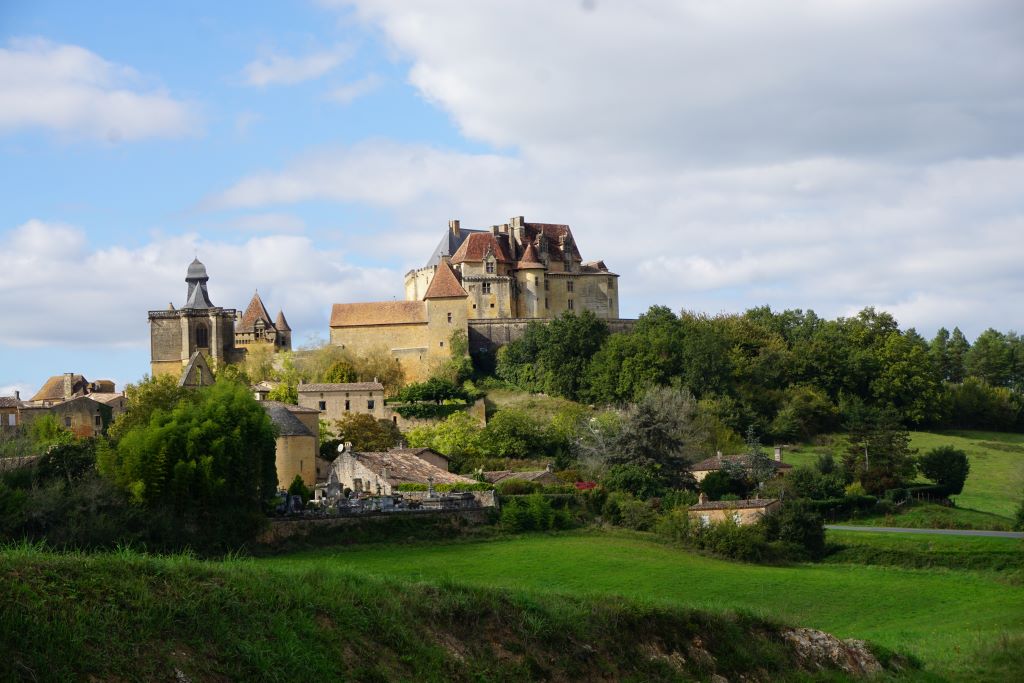We’re lost somewhere in the French countryside. A herd of caramel-colored cows are lazing in the late autumn sun. A rooster from a far-off field begs for attention. And the neat stone barn in front of us is not the winery we were looking for.
C’est la vie.
Laughing, we continue on. The winding roadway is littered with spiky, sweet chestnuts. Wild fig trees dangle the last fruits of the season. And around a bend, there’s a surprise: Château de Biron, an imposing crown on the hill above the fields and forests of Nouvelle-Aquitaine.
Of course, we have to stop. One of the joys of exploring the French countryside is embracing the unexpected. We learn that the chateau is the largest of more than 1,500 castles in the region. Built in the Middle Ages and enlarged over the centuries, the castle is an architectural time capsule that distinctly showcases the additions of the 16th, 17th and 18th centuries.
We’re soon back on the road, and this time there’s a directional sign for Domaine de la Tuque, an organic winery in the shadow of the castle. Owner Gilles Detilleux is out in the vineyard but comes over to greet us. They’re just finishing the harvest and he invites us to watch. Gille is proud that Domaine de la Tuque has been a certified organic farm since 2017. He tells us interest in organic wine has been growing steadily among growers and consumers.
Inside the winery, the pungent smell of the fermenting grapes is almost overpowering. Domaine de la Tuque cultivates varieties like Merlot and Cabernet Franc, as well as older grape varieties such as Colombard and Abouriou. Abouriou was thought to be extinct following the phylloxera epidemic of the mid-19th century, but it was reintroduced after a few vines were found clinging to the wall of a castle in nearby Villeréal.
We buy a few bottles, say au revoir to Gille, and head back into the countryside for our next adventure.

